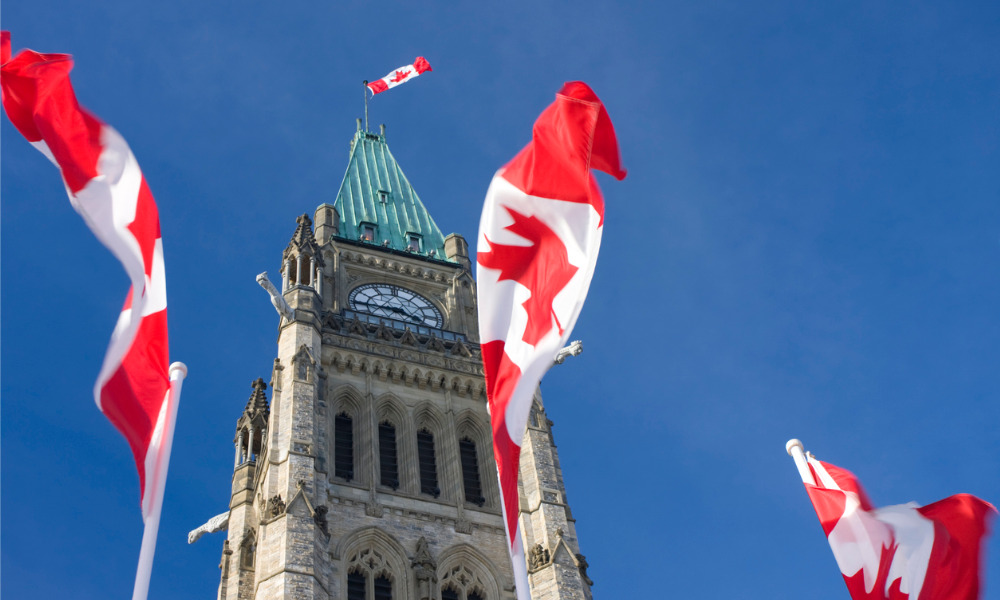Employer, labour groups say more changes still needed

Prime Minister Justin Trudeau has announced Canada Emergency Response Benefit (CERB) coverage will be extended by eight weeks.
"Many Canadians across the country are still facing a really tough time due to the COVID-19 pandemic, and we will continue to take action to better support them,” says Trudeau.
Workers who are receiving the CERB and still find work because they are unable to find a job will still receive $2,000 a month. The benefit will be available to eligible workers for up to a total of 24 weeks.
Over the next few weeks, the government will also monitor international best practices, the economy and the progression of the virus and, if needed, make necessary changes to the program so more people can have the support they need, says Trudeau.
Modifications still needed
The Canadian Federation of Independent Businesses (CFIB) welcomed the announcement, but reiterated that modifications must be made to the program.
The government should pass proposed legislation to end CERB benefits if an employer offers a return to work, says Dan Kelly, CFIB president and CEO, on Twitter.
In addition, like the requirements for employment insurance (EI), beneficiaries should be “available and actively looking for work (barring health/family issues), he said.
Thirdly, CERB recipients should be allowed to earn more than $1,000 without losing all benefits, meaning phasing out the benefits with additional earnings.
“A growing [number] of employers are reporting CERB is serving to delay employees' return to work. This was one of the program's intended goals during shutdown. While it is too soon to end CERB as thousands do not have a job to which to return, changes are needed for the recovery phase,” says Kelly.
The federal government said it will also make changes to the CERB attestation, which will encourage Canadians receiving the benefit to find employment and consult Job Bank, Canada's national employment service that offers tools to help with job searches.
CFIB had earlier called for changes to both the CERB and the Canada Emergency Wage Subsidy (CEWS) programs as the country's economies continue to reopen.
Welcome relief
The Workers' Action Centre (WAC) and Fight for $15 & Fairness Campaign welcomed Trudeau's announcement, but would prefer a 16-week extension to give more financial security to workers.
"For millions of workers who were just three weeks away from complete financial devastation, today's news brings a sigh of relief," says Deena Ladd, executive director of WAC. “But in just a few short weeks, workers will be in the same situation they were this morning — facing down an economic catastrophe.”
Fight for $15 & Fairness even noted that the New Democratic Party has also been calling for at least a four-month extension to CERB, and said that they are relieved that bill C-17 will not be going ahead. The bill proposes amendments to the Immigration and Refugee Protection Act to allow immigration officers to refuse to authorize foreign nationals to work in Canada if they are judged to be at risk of exploitation.
“Tabled last week, this punitive legislation threatened jail time for workers who may have received CERB erroneously, leading to confusion and panic amongst many who became unemployed during the pandemic,” says Pam Frache, coordinator of Fight for $15 & Fairness.
WAC also noted how the government can best incentivize work.
“Raise the minimum wage, make pandemic pay permanent, and ensure high standards of health and safety,” says Ladd. “And by health and safety, we mean real standards that include social distancing on the job and in staff quarters, employer-paid PPE, paid sick days, and — crucially — the right to refuse unsafe work.”
In April, the government expanded the CERB to cover more Canadian workers impacted by the COVID-19 pandemic. The government has also expanded the Canada Emergency Business Account (CEBA) to cover more Canadians and businesses facing difficult challenges as a result of the global COVID-19 outbreak.




